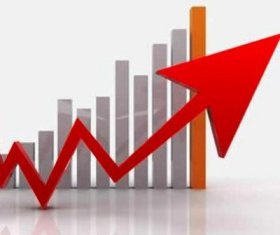 Ghana is making progress in stabilizing its economy
Ghana is making progress in stabilizing its economy
International ratings agency Fitch has revised the outlook on Ghana’s long-term foreign and local currency Issuer Default Ratings (IDR) from negative to stable.
Fitch has also affirmed the issue ratings on Ghana’s senior unsecured foreign and local currency bonds at ‘B’, as well as the ‘BB-‘ rating on Ghana’s $1 billion partially guaranteed notes.
According to the ratings agency, the stable outlook has come about as a result of the progress Ghana is making in stabilizing its economy after its recent crisis period with an expected revival in GDP growth, declining inflation, a more stable currency and increasing foreign exchange reserves.
Furthermore, Fitch judges that the new government will make progress in reducing the budget deficit after the election-related slippage in 2016, albeit with continued downside risks. Fitch expects growth to improve to 6 per cent in 2017 from an estimated 3.6 per cent in 2016, when it was hampered by lower than expected oil production and power cuts.
CPI inflation fell to 12.9 per cent year on year in March, from a peak of 19 per cent in March 2016.
The cedi has recovered to 4.2/USD, after depreciating to 4.7/USD in early March. The improvement in the macroeconomic environment has allowed the Bank of Ghana to cut its policy interest rate to 23.5 per cent from a peak of 26 per cent in 2016.
Further, rising oil production and the benefits from macroeconomic stability will support Ghana’s medium-term growth potential above 6 per cent, a key rating strength. Fitch forecasts the 2017 budget deficit to narrow to 7.5 per cent of GDP on a cash basis, and further to 5.5 per cent in 2018.
The rating agency however believes, that the expected increase in tax revenues will be difficult to realize, as the budget contains significant tax cuts aimed at boosting the business climate.
Fitch expects the debt/GDP ratio to decline to around 71 per cent by end-2017 due to strengthening of the exchange rate.